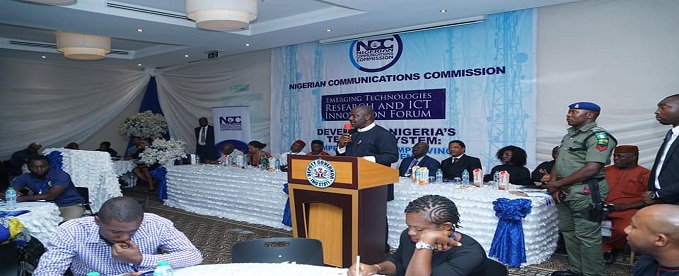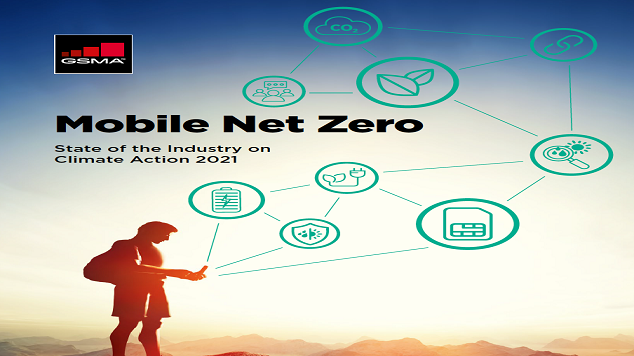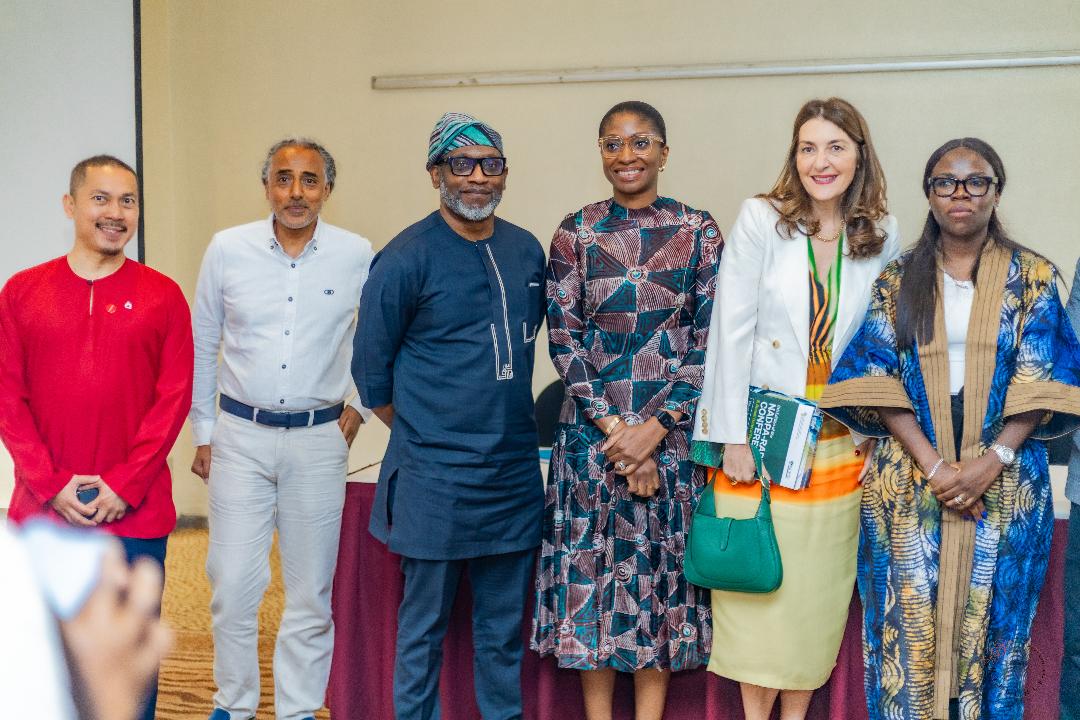Telecom
Ihedioha Solicits NCC Partnership for ICT Innovation in Imo

Emeka Ihedioha, governor of Imo State has solicited the partnership of the Nigerian Communications Commission NCC, in his administration’s effort to embrace and deepen digital culture in Imo State.
Governor Ihedioha stated this recently in an address presented on his behalf by Gerald Irona, his deputy, at the opening of a 2-Day Research and Innovation Forum organised by the NCC for tech entrepreneurs and other stakeholders in the South East geopolitical zone.
The governor recalled that in its first 100 days, his administration has recorded strides through the creation of the Ministry of Technology Development, funding ICT training programmes for different categories of persons, and instituting the digitisation of the State’s tax and revenue collection processes.
The governor then solicited the support and partnership of NCC to enable Imo State government to expand its vision for ICT innovation and technological development.
In a keynote paper by Prof. Umar Danbatta, executive vice chairman, NCC, who was represented by Haru Alhassan, director, New Media and Information Security, NCC affirmed the Commission’s commitment to collaborate with stakeholders in the country to deepen the impact of ICT research, innovation and utilisation.
Danbatta noted that the Commission “in its effort to encourage tech entrepreneurship and innovation in the ICT sector, has embarked on visitation to various tech startups across the six geopolitical zones to assess their development and challenges.”
The EVC said NCC is ready to assist the various innovation hubs with the appropriate interventions to ease their operations, stressing that the deliberations at the Forum will improve collaborative efforts and actions designed by governments and the NCC to accelerate innovation and accentuate digital economy in Nigeria.
Ephraim Nwokonneya, director, Research and Development DRD, at NCC underscored Danbatta’s remark that the Forum theme, “Developing Nigeria’s Tech Ecosystem: The Imperatives for Improving Local Content” was selected to emphasise the commitment of NCC to leverage local content in the nation’s effort to achieve concrete digital transformation.
Nwokonneya also said NCC’s initiatives in this regard will unlock the creative and entrepreneurial spirit of the young people, boost local content in the ICT sector and enhance wealth creation, facilitate the introduction of new value added services that will improve quality of consumer experience, and support President Buhari’s agenda to reduce poverty in Nigeria.
In a presentation by Dr. Chris Uwaje, a leading light of ICT research and innovations, Nigeria will concretely harness opportunities lurking in ICT and digital economy by improving local content participation, see innovation hubs as fulcrum of local content, ensure legislative and government support for tech initiatives, and nudge young people to be globally competitive.
Dr. Fidelis Onah, a former Director of Technical Standards and Network Integrity at NCC and now a tech entrepreneur, who made a presentation on the “Imperatives of e-governance in the Emerging Digital Economy”, allayed the fears of the public about people losing jobs as a result of tech innovations.
He said while some job losses may be recorded, much more jobs will be created in the increasingly digital economy.
He advised that stakeholders need to be ready by designing and reviewing existing policies to design strategies that will enable Nigeria to take advantage of the opportunities that abound within the digital culture.
He also warned that any society that refuse to embrace the digital culture will have to do so later at higher costs.
In a panel session on Legislative and Government Support for Enhancing Tech Ecosystem in Nigeria, chaired by Tony Ojobo, former Director Public Affairs at NCC, Founder of Tech X Innovation Hub and President of African ICT Foundation, discussants agreed on the need for state governments to designate a Commissioner for ICT Development.
The panelists reasoned that it is also important for all stakeholders to demonstrate the awareness of the capacity of ICT to galvanise growth so that such knowledge can trigger more concrete action to provide access, adoption and application of ICTs in all facets of life.
In another panel discussion focused on Innovation Hubs as Fulcrum of Local Content, chaired by Hanson Johnson, Founder of Nextdeegit Hub, panelists were on accord that innovation hubs hold the promise of harnessing the energy of the youths for creativity and measurable outcomes.
Overall, all panel sessions emphasised the need for clear and harmonised policies and strategies, more collaboration of stakeholders and particularly advocated for a new approach by government that shows the government appreciate the value of ICT, innovation and the treasures lurked in the digital culture.
Participants welcomed enthusiastically the NCC’s vision of Silicon WAZOBIA, a replication of the Silicon Valley Model, but discussants and other participants urged government to get more intimately involved in mobilising the innovation hubs, the academia and other strategic actors in the emerging revolution driven by ICT.
The Forum is being attended by many stakeholders including Nigerian Communications Satellite Limited, Galaxy Backbone Plc, Mobile Network Operators (MNOs), tech economy enthusiasts, entrepreneurs of tech innovation hubs, as well as captains of other capacity-building and startup businesses, Nigerian Computer Society (NCS), banks, Zinox Technologies and other players in the telecom ecosystem.
Telecom
Tarana, Microsoft Enhance Africa’s Broadband Connectivity

Tarana, provider of next-generation fixed wireless access (ngFWA) broadband technology, is collaborating with Microsoft to expand internet access in rural and underserved communities across Africa.

Together, the companies will help service providers in rural and underserved Africa deploy government-approved telecom equipment, along with training and technical support.
This comes as access to secure; affordable telecom equipment remains a major barrier to internet connectivity in Africa. Despite progress, high infrastructure costs and limited rural coverage have allowed the digital divide to persist.
Tarana stated that in some areas, fewer than 30% of people have dependable internet connectivity.
To that end, it said its collaboration with Microsoft will help reduce the cost of ngFWA equipment for African internet service providers while also assisting with deployment logistics, enabling them to give internet access more faster and more cost-effectively.
The company went on to say overcoming two primary limitations of traditional fixed wireless access) technology, ngFWA delivers high-speed broadband service in both non-line-of-sight conditions and heavy radio interference, making it an ideal solution for hard-to-reach and underserved markets.
More than 250 operators worldwide are deploying ngFWA to deliver better broadband more efficiently, said the company.
Basil Alwan, CEO of Tarana, added: “We look forward to making significant progress on the digital divide together.”
“Access to affordable, secure broadband infrastructure is essential for unlocking economic opportunity through digital access across Africa,” said Vickie Robinson, general manager, energy, connectivity, and sustainability at Microsoft. “By working with Tarana, we’re helping local operators overcome cost and deployment barriers so they can bring high-speed connectivity to the communities that need it most.”
Telecom
Mobile Industry Emissions Down 8%, But Pace Must Double to Hit Net Zero

The mobile industry’s operational emissions fell by 8% between 2019 and 2023, even as mobile connections grew by 9% and data traffic quadrupled, according to the GSMA’s fifth annual Mobile Net Zero report released this week.

The findings show the mobile industry has successfully started to decouple emissions from data and connectivity growth – a stark contrast to global emissions, which have increased 4% since 2019. However, to continue progress and reach net zero by 2050, emissions must fall by 7.5% annually until 2030 – more than twice the average annual rate achieved to date.
Key findings from the report include:
- Preliminary 2024 data suggests a further 4.5% drop in emissions – an acceleration on previous years, but still short of the 7.5% annual reduction needed to 2030.
- 37% of electricity used by operators disclosing to CDP came from renewables in 2023, up from 13% in 2019 – avoiding 16 million tonnes of emissions.
- 81 mobile operators (covering nearly half of global connections) have set or committed to science-based targets.
- The GSMA Climate Action Taskforce now includes 77 operators, covering 80% of mobile connections worldwide.
- Europe (-56%), North America (-44%), and Latin America (-36%) lead the way in operational emissions reductions between 2019 and 2023.
- New analysis of China shows operational emissions likely fell by 4% in 2024 – the first decline after a 7% rise between 2019–2023 – alongside a more than quadrupling of renewable energy use.
Global, collaborative climate action gathers pace
The acceleration in decarbonisation is driven by operator actions to improve network energy efficiency and transition to clean energy, including solar and battery storage. Many operators are phasing out less efficient legacy networks and reducing their reliance on diesel generators.
Some markets are seeing better renewable electricity access through policy support and market reform, but the GSMA warns that the accelerated reductions needed by 2030 will require greater access across more markets.
Regional momentum is building globally, with Europe and the Americas leading emissions reductions, while Asia and Africa show increasing engagement. China, representing the world’s largest mobile market with more than one billion 5G connections, shows promising progress in 2024.
New analysis published today to frame discussions at MWC25 Shanghai indicates China’s operational emissions declined for the first time in 2024, with preliminary data showing a 4% reduction year-on-year driven by a more than quadrupling in renewable energy use by operators. As the industry’s largest single market, China’s progress is instrumental in achieving global net zero targets.
Steven Moore, Head of Climate Action at the GSMA comments: “Our findings show the mobile industry isn’t greenwashing or greenwishing – it’s green acting. Emissions are trending in the right direction, but the pace of progress must now double.
“This is a global effort, and it’s encouraging to see momentum building across every region – from Latin America to Europe and especially to China.
“But to sustain this progress, we need broader support: better access to renewables, more policy certainty, and stronger collaboration across the ecosystem. Supply chain emissions, which make up most of our industry’s footprint, must also be addressed – and climate transition plans will play an increasingly important role in navigating what comes next.”
Focus on Scope 3 and circularity sharpens
The report emphasises that Scope 3 emissions – mostly from supply chains and manufacturing – account for more than two-thirds of the industry’s total carbon footprint and require attention. While transparency is improving, Scope 3 emissions remain a blind spot compared with operational emissions (Scopes 1 and 2), making them a critical challenge for operators with science-based targets, which require reductions across full value chain emissions.
Additionally, the report points to growing momentum around circular economy initiatives. Consumer appetite for sustainable devices is rising, with around 90% of users surveyed by GSMA saying they value longevity and repairability, and nearly half considering refurbished for their next phone purchase.
Buying refurbished instead of new can save consumers money and reduce environmental impacts from manufacturing, with refurbished phones generating 80-90% fewer emissions than new ones. While new device sales have slowed in recent years, the second-hand device market is growing rapidly, and projected to be worth $150 billion by 2027.
Many leading operators are now developing climate transition plans to assess climate risks and map out credible, long-term strategies toward net zero. These plans are expected to become a key focus of the GSMA’s Climate Action Programme over the coming year.
Telecom
MTN’s Ikenna Ikeme Urges Responsible AI Use @Pan African Data Policy Conference

The use of local content in Artificial Intelligence systems is essential for delivering accurate, region-specific results, according to MTN Nigeria’s General Manager for Regulatory Affairs, Ikenna Ikeme.

He shared this perspective at the recently held Network of African Data Protection Authorities (NADPA) Conference, held in Abuja recently.
The conference convened industry leaders, policymakers, and experts to discuss the role of data and AI in shaping Africa’s future. Key discussions focused on balancing innovation with risk, safeguarding data in AI systems, promoting responsible data use, and enabling cross-border data flows.
During a panel on “Data Governance for Responsible and Beneficial Use of AI,” Ikeme highlighted data’s dual nature. “Data can be transformational by bringing efficiency to businesses, but it also presents risks, ranging from privacy to investment,” he stated. He warned against relying too much on external data.
Adewale Adene, Google’s Government Affairs and Public Policy Manager, also spoke at the session. Adene projected AI and data governance could add $30 trillion to Africa’s economy by 2030. “All relevant authorities and stakeholders must ensure Africa is positioned to capitalise on this new economy,” he urged.
Other panelists included Nonye Ujam, Government Affairs Lead at Microsoft; Ololade Shyllon, Director of Privacy Policy for Africa, the Middle East, and Turkey at Meta; Oliver Patel, Head of Enterprise AI Governance at AstraZeneca (who joined remotely); Femi Daniel, Senior Counsel, Privacy and Data Protection at Mastercard; and Adewolu Adene, Government Affairs and Public Policy Manager at Google.
The conference stressed the urgent need for African stakeholders to create strategic policies. These policies should support both growth and safety.
Participants called for collaboration, investment in local data infrastructure, and strong legal frameworks. This is to ensure AI technologies are developed and used responsibly.
The NADPA Conference served as a timely call to action. It urged governments, companies, and regulators to prioritise trust and transparency. Homegrown solutions are key in shaping Africa’s digital destiny, the conference concluded.

 Telecom3 days ago
Telecom3 days agoALTON Clarifies on Migration to End-User Billing for USSD Services

 E-Financial3 days ago
E-Financial3 days agoNigerian Stock Market Suffers ₦183 Billion Loss Amid Profit-Taking

 News3 days ago
News3 days agoDStv Rewards Loyal Customers with Free Package Upgrades

 Telecom3 days ago
Telecom3 days agoLagos Future Conference 2025: Stakeholders Call for Digital Responsibility and Grassroots Innovation

 News2 days ago
News2 days agoLasaco Assurance to Invest in Technologies, Systems to Deliver Value to Clients

 General News3 days ago
General News3 days agoAfrican Parliamentarians Seek Answers from Telcos on Quality of Service

 E-Financial3 days ago
E-Financial3 days agoSEC Working on Stablecoin Regulation Framework

 News3 days ago
News3 days agoFCCPC Orders Air Peace to Appear Over Alleged Refund Violations


















